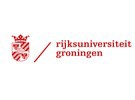The University of Groningen and Wageningen University & Research have started a research project with almost all supermarkets in the Netherlands. The research, called ‘Transparently healthy & sustainable’ focuses on interventions to improve transparency and support consumers in making healthier and sustainable product choices.
Koert van Ittersum, professor of Marketing & Consumer Well-being at the University of Groningen, explains: “You can for example think of the effectiveness of food choice logos and shelf layouts based on the healthiness of the alternatives, or informing consumers about more sustainable options via smart shopping carts.” The research is being conducted by scholars from the University of Groningen and Wageningen University & Research. The project started on 1 September and will last four years.
Making healthy and sustainable choices while shopping is not easy; consumers receive a lot of product information through the packaging, e.g. the nutritional values and information about the origin of the product. For this, various quality marks and logos are also available in the supermarket. When purchasing a single product, it may be worthwhile for consumers to delve into all of this information. However, there are often several alternatives that consumers can choose from and they usually buy more than one product. This makes delving into the relevant information difficult and time-consuming. The relevant information that is available in the supermarket does not meet the criteria of transparency: disclosure, accuracy and clarity.
Information lacks transparency
This research assumes that the most relevant information for making a healthier or more sustainable choice is available in the supermarket, either in the brick-and-mortar store or online in their webshop. However, this information often lacks transparency, which means that consumers are not well supported in making a healthy and sustainable choice.
“With so many retailers involved, this really is a unique project. Despite their individual interests, it shows a shared sense of responsibility for where our food system should go,” says Hans van Trijp, Professor of Marketing and Consumer Behavior at Wageningen University & Research.
This research aims to better understand what motivates consumers to make healthy and sustainable choices and how retailers can better empower consumers to make healthy and sustainable choices in the supermarket.
Unique project
One of the unique dimensions of this project is that all major supermarket organizations active in the Netherlands are involved. Marc Jansen, director of CBL: “For us as CBL it is perhaps self-evident that supermarkets work together to tackle cross-company issues and topics. By also working together within a scientific research program, the outcomes and learnings ultimately become stronger and more relevant to society. All supermarkets have an interest in healthy and resilient customers who can make conscious and well-informed choices from the extensive food range. In this way, we contribute towards a healthier and more sustainable Netherlands for all Dutch people by improving the transparency in supermarkets.”
For more information: 
Koert van Ittersum
University of Groningen
Tel: +31 050 36 36639
Email: k.van.ittersum@rug.nl
www.rug.nl
